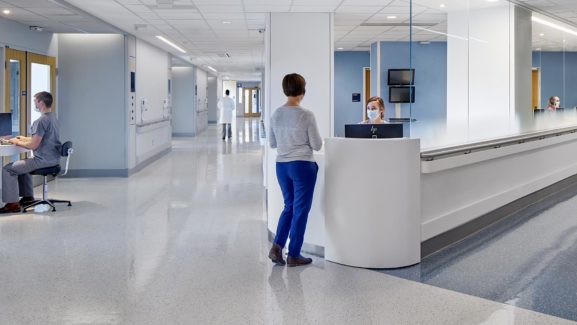
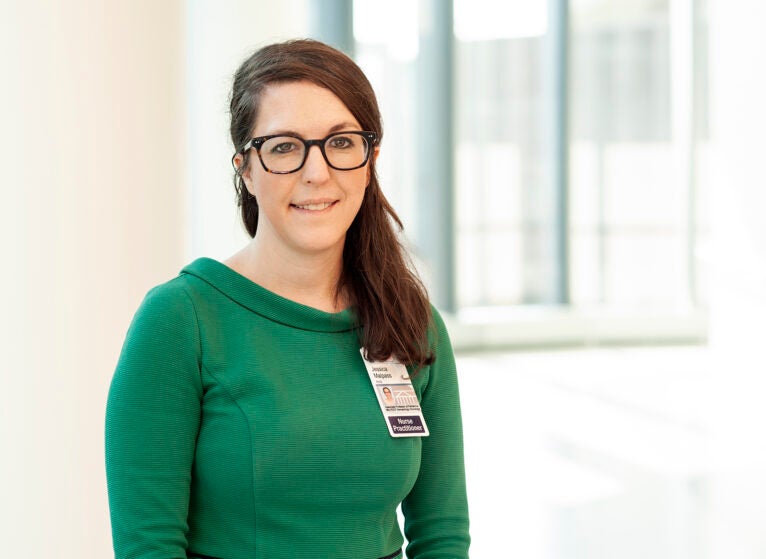
Hope at Work: How Jessica Keim-Malpass’s Personal Journey Helps Her Better Serve Patients, Families, Students, and Team Members
This is the latest installment in our Connect article series “Hope at Work” — showcasing inspiring stories about how our team members contribute to UVA Health’s 10-year Strategic Plan: “One Future Together Health and Hope for All.” No matter where you work, you have an opportunity to inspire hope in others. These stories show how:
Jessica Keim-Malpass, PhD, RN, CPNP-AC, FAAN, has a stellar CV. She’s an Associate Professor of Pediatric Hematology-Oncology at UVA School of Medicine — and a nurse scientist and nurse practitioner in the field. Her research has been funded by the National Institutes of Health, Agency for Healthcare Research and Quality, National Science Foundation, and philanthropic organizations. She’s recognized as a National Academy of Medicine Scholar in Diagnostic Excellence and as a Betty Irene Moore Nurse Innovator Fellow.
But it wasn’t until the height of the pandemic in 2020 — when her own loved one was diagnosed with leukemia — that Jessica gained personal insights into the experiences of a care partner and as a patient’s family member.
'Immediately Hooked'
Originally from Pennsylvania and Missouri, Jessica knew she wanted to be a research scientist — before she knew she wanted to be a nurse. As a senior at Wake Forest University in North Carolina, she served as a research assistant for a faculty member in psycho-oncology and was exposed to clinical research.
Jessica enrolled patients with cancer diagnoses in studies. “I was immediately hooked and became really interested in clinical epidemiology and other clinical research applications,” she recalls. “Even during that time in my life, my favorite part about that role was the hours spent at the Comprehensive Cancer Center, talking to patients and families and understanding more about their lives.”
Distinction in Education
After college, Jessica entered UVA School of Medicine in order to pursue a graduate degree in Health Evaluation Sciences, now Public Health Sciences. She spent more time with physicians and nurses and determined which clinical path to pursue. “I highly credit time interfacing with Terran Sims, ACNP, in helping me to see the role of the nurse practitioner and fall in love with nursing!” she says.
Jessica joined UVA School of Nursing as a graduate student in 2006 to become a nurse through the Clinical Nurse Leaders program and completed her PhD — combining her passions for patient care and clinical research. She worked as a bedside nurse at UVA Health University Medical Center’s Pediatric Intensive Care Unit (PICU), and later as a pediatric hematology-oncology and stem cell transplantation nurse in Charlotte, North Carolina, while also completing her post-doc in cancer survivorship. Then she returned to a faculty role in 2013 at UVA School of Nursing. She also worked as a nurse coordinator in breast oncology for Shayna Showalter, MD, whom Jessica still considers a close collaborator.
Leading Research and Translational Impact
Jessica transitioned her faculty appointment to UVA School of Medicine in April 2023. Most of her day is spent in a research role — likely writing a grant or manuscript, analyzing data, holding research meetings.
She’s also connected to collaborators at the Center for Advanced Medical Analytics and iThriv, our Clinical and Translational Science Award program, where she leads the new dissemination and implementation core and participates in a leadership role within the Scholars Program. In general, Jessica’s research focuses on developing computational models that can help us to improve care for patients and families with serious and critical illnesses, and on equitable pediatric hospice use and pediatric end-of-life care with collaborators from the University of Tennessee-Knoxville.
Jessica also enjoys mentoring students and trainees who are new to research.
Superior Quality, Patient Safety, and Outcomes
On clinic days, Jessica sees patients with an underlying hematological condition; with cancer actively on chemotherapy; or with cancer who are off therapy. She also works with families whose children have been diagnosed with cancer or a blood disorder.
She recalls an early PICU nursing experience, caring for a young child with cancer. “It was a really challenging and distressing situation. Despite that, the world kind of stood still in that moment and I had a very distinct feeling that this is exactly what I should be doing with my life — I knew I could be a support for families with a child/young person with a serious cancer diagnosis.”
“I very much feel like I have my dream job and I’m so incredibly lucky to have a clinical practice in pediatric hematology-oncology and thankful to the amazing clinicians and families in this area I have learned so much from,” she says. She lauds her colleagues “utter commitment” to patient and family-centered high quality care.
Off the Beaten Path
Jessica also explains how she delved into decision analytics, data science, and health economics for family-centered care. “I took a bit of a non-traditional approach to get as many methodological and cross-disciplinary tools in my research toolbox as I could."
According to Jessica, decision sciences are a way to quantitatively assess trade-offs and uncertainty in any clinical intervention you choose. Data science allows us to understand the underlying dynamic nature of illness trajectories. The confluence of the two is an area that’s really needed, particularly as we bring in novel precision therapies and artificial intelligence (AI) models into the health system. “We need methods to really assess and evaluate these technologies to make them more approachable for both clinicians and families alike,” she explains.
Rooted in Medicine
Dedication to healthcare runs deep in Jessica’s family. Her great-grandmother was the first female pharmacist to graduate from the University of North Carolina; her grandmother was a psychiatric nurse; and her sister is a pediatric developmental nurse practitioner. Two of Jessica’s aunts are nurses — one of them, here at UVA Health: Rebecca Wolfe, Assistant Nurse Manger, Ambulatory.
And it was in summer 2020, at the height of the pandemic, that Jessica’s husband, UVA School of Medicine Associate Professor and UVA Health pulmonologist Howard Charles “Charlie” Malpass, MD, himself became a patient — diagnosed with leukemia and treated at UVA Health by Michael Keng, MD, and nurse practitioner Kim Conrad, FNP — full circle, since Kim was Jessica’s clinical preceptor when Jessica was in nursing school.
‘Everything Was Paused’
Jessica also says her dissertation work in 2010 specifically focused on young adults with advanced cancer and the unique juxtaposition of their developmental perspective with advanced disease. Their experiences gave her plenty of insights from which to draw, along with her care of young people with cancer throughout her career. “I felt prepared and woefully unprepared at the same time,” she says of her new, personal role as Charlie’s care partner. “It was an incredible experience to transition from oncology nurse to care partner.”
Jessica says because of the nature of treatment for patients with acute myeloid leukemia (AML) — Charlie had prolonged, inpatient hospital stays for treatment along with outpatient visits for supportive care needs. “Everything was paused, although the world was kind of paused at that point anyway,” she describes. “It was a very isolating time. But we both focused on prioritizing our son Huck’s needs in the process of receiving treatment.” Jessica also worked on her research in smaller chunks of time during the day and still taught nursing students.
Honesty, Clarity, Compassion
Tragically, Charlie passed away — suddenly and unexpectedly — on Sept. 14, 2023. He was only 44 years old.
“Charlie was always an amazing physician, husband, and father — he certainly did not need the AML diagnosis to become any of those things,” Jessica writes in an essay that she penned for Connect. “The first time I encountered him in the hospital in 2007 — months before we would go on our first date — he was an internal medicine resident and I remember hearing Charlie in a mutual patient’s room having a difficult, goals-of-care conversation. I remember the honesty, the absolute clarity he brought to the conversation, the compassion in his demeanor — and when he left I told my preceptor, ‘Wow, that was a really difficult conversation that was very well done.’” (Read her essay, "His usual order," below this article.)
After acting as her husband’s care partner through leukemia, is Jessica better able to serve her own patients and their families? “I’ll be the first to say that I have not had the experience of being a parent of a child who has cancer, but I have been the partner of someone with a challenging diagnosis, so I can relate to the shock and steadfast nature of survival mode that most of our patients and families experience when they see us for treatment,” she answers.
Understanding the Family Experience
Jessica also relates to the “utter uncertainty” families live with during and after treatment — well into extended survivorship — and their need for clear and constant communication. “I appreciate the feeling of wanting to know who everyone in the room is and their role on the care team. I also appreciate leaving space for quiet — so their families can gather questions, grieve, celebrate — whatever is going on for that day in that moment.”
Her journey is having even more of an impact. “I’m embarking on some narrative medicine practices to process my experience more deeply,” says Jessica. “Telling my story through poetry and other narrative practices better helps me connect with myself, can help others going through serious illness feel less alone, and can help clinicians really understand the family experience.”
Below, read Jessica's reflections:
His usual order
by Jessica Keim-Malpass
About a month before my husband Charlie died, I was in dire need of my afternoon caffeine pick-me-up and found myself near Higher Grounds without my wallet. As luck would have it, I saw Charlie was already there in line and asked him to add my ‘90 with cream’ to his usual order and took the moment to give him a quick hug. He joked that even my non-fussy order would cause a delay — this is because whenever the wonderful baristas would see my husband, they would go ahead and start his order and ring him up. This was a small gesture, sure, but one that truly delighted Charlie. I like to think of the ways he would describe these numerous interactions with the baristas as a moment of respite — of connection — during days as a clinician (as a pulmonologist, for Charlie) where it is easy to lose yourself in the shuffle of patient care.
The months that followed would be a blur. Charlie planned an amazing trip to London, with our son Huck centered in the agenda. The resulting itinerary was perfection, certainly the best trip we’ve ever taken as a family. The timing of it felt right as well — Charlie was now three years out from his original acute myeloid leukemia (AML) diagnosis and while the fear of recurrence was omnipresent, it somehow felt muted, manageable even. This would be the first time we felt comfortable enough planning a trip that far in advance.
When we returned, it was normal, late August, back-to-school activities. In classic Charlie fashion (the fun parent!) he and Huck decided to have his friends over for one last summer bash before school started. He texted to me a picture with Huck — in Charlie’s truck, surrounded by water toys that had been on end-of-summer clearance. Knowing what he signed himself up for — with six, rising third-grade boys and a truck full of water toys — he lovingly joined in on the action. Charlie was always an amazing physician, husband, and father — he certainly did not need the AML diagnosis to become any of those things.
The first time I encountered him in the hospital in 2007 — months before we would go on our first date — he was an internal medicine resident and I remember hearing Charlie in a mutual patient’s room having a difficult, goals-of-care conversation. I remember the honesty, the absolute clarity he brought to the conversation, the compassion in his demeanor — and when he left, I told my preceptor, “Wow, that was a really difficult conversation that was very well done.”
This gift continued throughout Charlie's career. I would hear the echoed cadence of numerous, 9 p.m. conversations he would have with patients when he would first see their pathology results. I would think to myself all the time, “Now that’s a damn good physician!” My husband just had it — he was a doctor’s doctor with quiet confidence and a never ending passion for doing the right thing for patient care, always improving himself as a bronchoscopist, and teaching the next generation of pulmonary critical care physicians, advanced practice providers, and any clinician who wanted to learn. The cancer diagnosis did bring crystal-like clarity to him about how he wanted to spend his time and energy. It should be a surprise to no one that he was desperate to go back to work after six months of intensive chemotherapy because of the joy he received from doing his job.
Charlie was a large reason I decided to continue my clinical education and become an acute care pediatric nurse practitioner. (If Charlie were here, he might argue that it’s more likely because I can’t quit graduate school, I have an obsession with school supplies, or I have too many interests — all of which are also true). Charlie was a huge inspiration and source of an existential career crisis. I was already on a path of becoming an established researcher; however, my first clinical nursing love was always pediatric hematology-oncology and care of young people at the end of life.
My dissertation work focused on young adults with cancer and the unique challenges they face at the end of life given their developmental stages and multiple emerging roles — both in their career and in their personal lives. They often encompass a juxtaposition of contrasts, of beginning and endings. Given Charlie’s AML diagnosis in 2020, I wasn’t sure if I would be able to do “it” again. I know that many of us here are familiar with the “it” — the joyful giving of oneself to be emotionally present and open in our patients’ lives, to journey alongside them on their path. To no surprise, Charlie was the one who encouraged me that I could be both things: re-engage as a nurse practitioner and continue to be a supportive partner to him. While I already had the heart to do it, Charlie was the one who gave me the courage I needed to pursue my dream role of combining patient care and research.
The day of his death was sudden and unexpected. We only learned of Charlie’s AML recurrence on the day he died. Charlie’s colleagues — his friends — cared for him at the end of his life. In normal worlds, you shouldn’t have a dear friend who was present at your wedding also be the one to pronounce your final moments or help tell your son that his Dad died (we love you, Kyle). When I took the time to think about it another way, I was able to let glimmers of gratitude seep in — how lucky was I to look around the room and see people who loved Charlie take care of him in his final moments. I thought of all the inside jokes he and Becky would have shared; the morbid jokes he would have told his fellow attendings; the Zelda tricks he would have wanted to tell Claire; how he would have wanted to tell the whole team how good of a job they did. He would have wanted to thank them for letting me be there to say goodbye.
So as Charlie’s oncology team, critical care colleagues and friends, and all of the clinicians and staff he loved working with go upon their days — and we all try to heal the massive hole in our hearts that his absence leaves — I love to think about how I will run into them at Higher Grounds. Hopefully, I can give them a quick hug as they are taking a much needed respite and taking a moment to care for themselves during their days when they are caring so beautifully for others.
Latest News


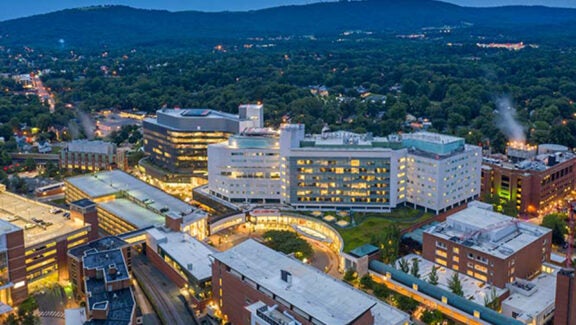

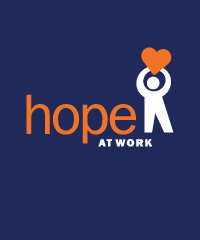
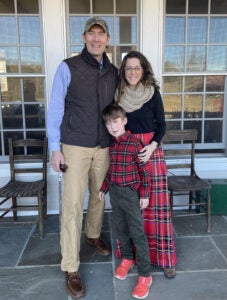
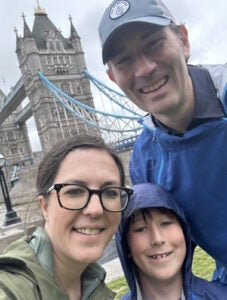
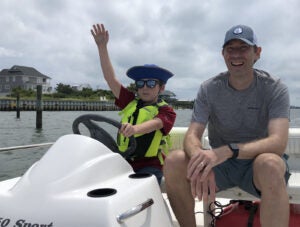
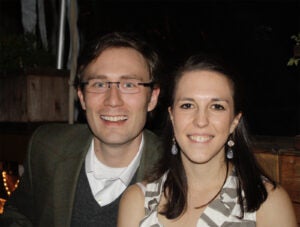
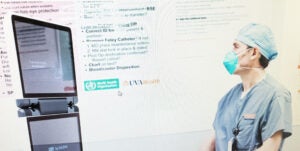
Absolutely inspirational. Thank you, thank you, thank you for sharing this story.
Jess, you and Charlie continue to inspire me. I know hard to write but so important for team members to hear!
He was an amazing man and MD. I was fortunate enough to have seen him as a patient and to work with him in radiology. He was SO competent, thoughtful, kind, compassionate, and thorough. It was an honor to have worked with him and we truly miss him. You are an inspiration. Your son has an amazing legacy.
I was lucky enough to have worked with Charles as his care coordinator. He was exceptional in all aspects of his profession, and as a human being. I miss him every day I walk into work. The testimonials as his patients call and discover his absence, are unlike anything I have experienced. His patients loved him and knew how lucky they were to have him as a provider. It is a rare thing to be able to inspire that kind of a following in medicine today, but he did it without even trying, Thank you for sharing.
I was honored to know you both! Thank you for sharing your journey. You are an inspiration, and I will forever miss Charles.
Absolutely beautiful, Jess. You perfectly captured the strange mixture of sadness and beauty that filled the room while the team cared for Charles that day. Thank you for sharing your journey and honoring his legacy in this way.
Hope to hug you in the Higher Grounds line soon :).
I had the pleasure of working with Dr. Malpass out at Zion Crossroads. To hear all the patients talk about how great he was, It was a blessing because when Dr. Rose retired, I knew I had to get my family member in with him. Seeing him interact with her and the time he spent with her was a blessing. He was exceptional in all aspects. We miss him.
I pray that you and your son have found peace and comfort in knowing that Dr. Malpass was appreciated and loved by so many.
Thank you for sharing your journey with us.
Thank you, Jess, for sharing this wonderfully inspirational story about Charlie, and about you! I only know Charlie through your words, but he must have been a magnificent and special person to have captured your heart. I am personally moved by your story, and privileged to be present to watch your journey of hope and healing. I’m proud to call you a friend and humbled by your strength. Your story exemplifies the goodness that arises from selfless giving and the richness we bring to each other through its reciprocity. We all can learn from you and Charlie.
Thank you sharing these personal stories. Charles was a nice person and had a great sense of humor. He is missed.